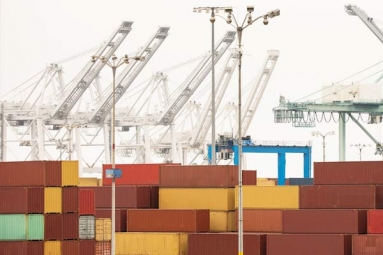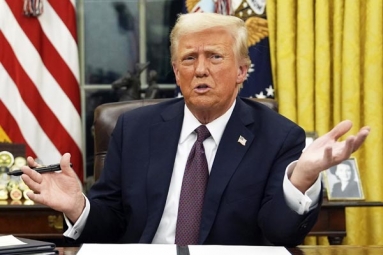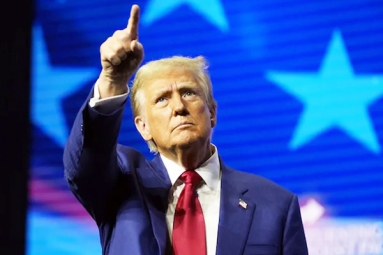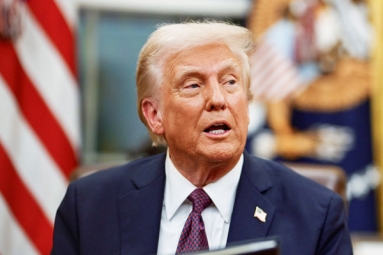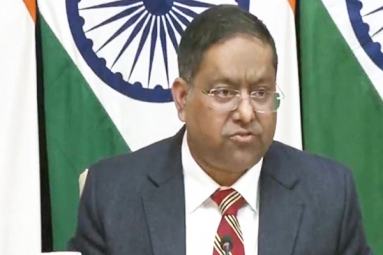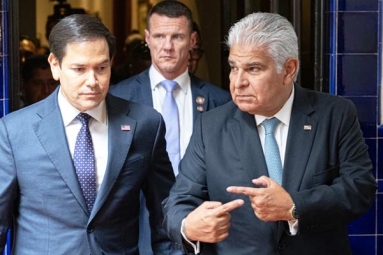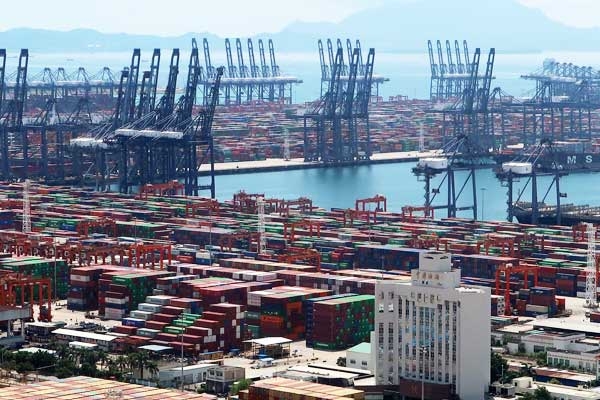
(Image source from: Reuters.com)
Following President Donald Trump's announcement of a 10% tariff on imports from China, the Chinese government responded swiftly by imposing tariffs on various US products and initiating an investigation into Google. This development marks the resurgence of a trade conflict between the two largest economies in the world. The State Administration for Market Regulation declared on Tuesday that it would look into possible antitrust issues involving the American tech firm. In addition, China has implemented a 15% tariff on US coal and liquefied natural gas exports, along with a 10% tariff on oil and agricultural machinery. Furthermore, the Chinese authorities added PVH Corp., the owner of Calvin Klein, and Illumina Inc., a US gene sequencing company, to a blacklist and introduced new export restrictions on tungsten-related materials.
The Chinese Finance Ministry stated that the US's unilateral tariff measures significantly breach World Trade Organization regulations, noting that such actions not only fail to resolve American issues but also disrupt regular economic and trade interactions between China and the US. President Xi Jinping's response appears strategically crafted to inflict damage across various sectors without severely harming China's economic landscape. This includes potential disruptions to the critical minerals supply chain and negative impacts on US businesses actively operating within China.
This measured approach, combined with speculation about Xi's potential initiatives to strengthen China's economy, resulted in a notably subdued market reaction, especially as Trump expressed interest in engaging with Xi before the tariffs were implemented. Following this announcement, the US dollar regained strength, while the offshore yuan depreciated by 0.3%, and the currencies of Australia and New Zealand, which have significant trade relations with China, dropped nearly 1%. Other Asian currencies like the Thai baht and the Indonesian rupiah also saw their gains reduced. According to Dylan Loh, an assistant professor at Nanyang Technological University in Singapore, China’s reaction was “measured and appropriate,” enabling Beijing to be perceived as taking action without escalating the situation to invite further retaliation. He further remarked that China observes the responses of Canada and Mexico, recognizing the possibility of reaching a mutual agreement.
Immediately following the implementation of U.S. tariffs, Xi's administration retaliated swiftly. This response extinguished any hopes that a negotiation could prevent the tariffs, especially after Trump indicated that he would communicate with Xi shortly. Earlier, the Republican leader had granted a temporary exemption to Canada and Mexico from a 25% tariff following discussions with their leaders. Ship-tracking data reveals that last year, the U.S. supplied around 6% of China's liquefied natural gas imports, and China sources very little coal from the U.S. Since 2010, Google's search and internet services for consumers have been blocked in China, although the company continues to operate there, mainly focusing on its advertising enterprise.
Lynn Song, the chief economist for Greater China at ING Bank in Hong Kong, remarked that this action can be seen as a cautionary signal to American businesses that heavily rely on the Chinese market. She added that there remains a possibility the tariffs could be swiftly reduced or postponed following in-person discussions. Song characterized the response as a rather tempered retaliation, pointing out that energy constitutes a minor portion of China's imports from the U.S.
China stands as the world's leading tungsten producer, contributing approximately 80% of global output. Tungsten is notable for its high density and melting point, making it effective against extreme temperatures, and is primarily utilized in armor-piercing munitions in the defense sector. PVH, which also owns Tommy Hilfiger, has been under scrutiny from Chinese regulatory bodies since September due to claims of boycotting cotton sourced from the Xinjiang region; however, the statement regarding this issue was not specified. Illumina, a leading global entity in genetic sequencing, competes with the Chinese biotech firm BGI Genomics Co.
Over the weekend, Trump mandated a comprehensive tariff on Chinese exports, set to take effect just after midnight on Tuesday, attributing this action to Beijing’s inability to curb the influx of illegal drugs. The orders included retaliatory provisions that would raise tariffs if the countries reacted similarly.
If Beijing were to take a more forceful stance, it could jeopardize the delicate state of U.S.-China relations, which had shown signs of stabilization since Xi and former U.S. president Joe Biden met in San Francisco in November 2023. Despite ongoing tensions regarding access to technology and territorial issues, both nations have resumed high-level diplomatic engagements. Before his inauguration, Trump had a phone discussion with Xi centered around trade, TikTok, and fentanyl. On Monday, Trump mentioned that he anticipated another conversation with Xi, likely within the next 24 hours, a statement to which Beijing has not yet offered a public reply.







